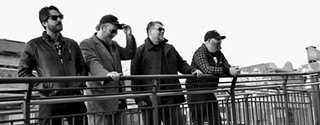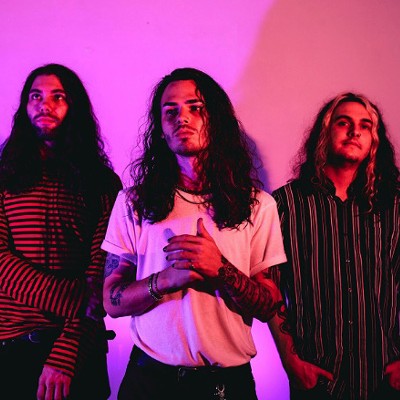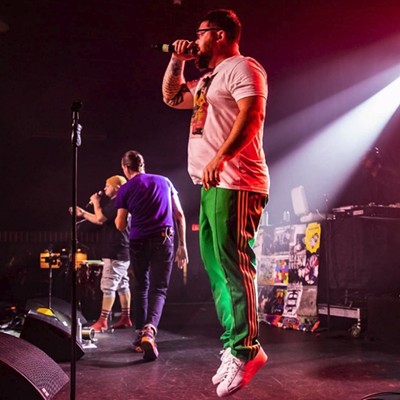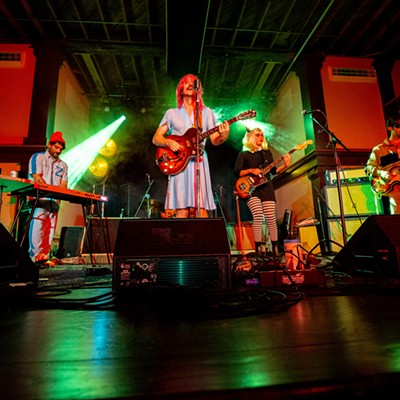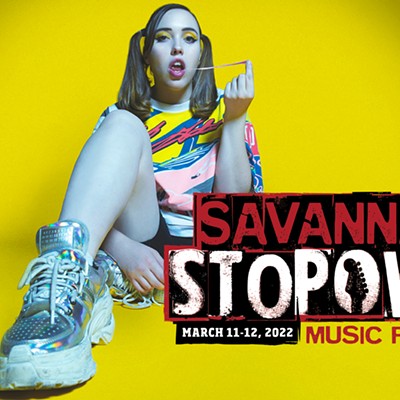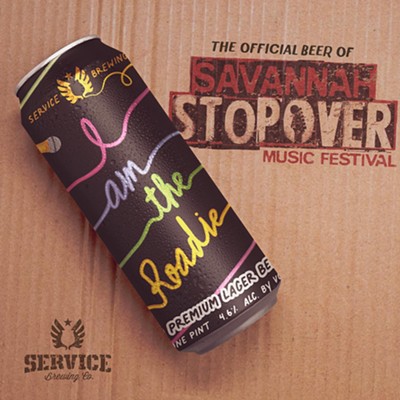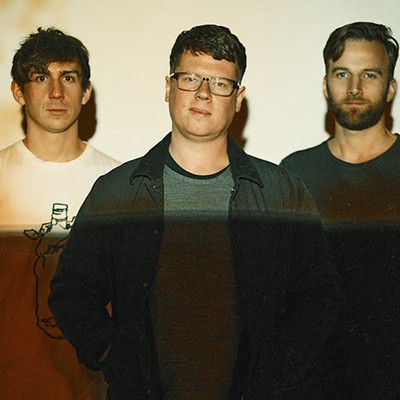SINCE forming in Savannah and relocating to Athens, Perpetual Groove has become something of a household name, at least to live music fans throughout the Southeast. The band has staked its place alongside jam bands like Phish, the Grateful Dead, and moe. as a stellar live act – aided by their incredible improvisational skills.
It’s in the studio, though, where the band evolves and really lets the songs shine.
The group, which recently launched a Kickstarter to fund their latest LP, is set to play at Two Tides Brewing Company on Nov. 30, where they’ll play the songs fans love and showcase the new material.
Ahead of the show, we talked to keyboardist Matt McDonald about the band’s history, the new album, and why the forthcoming studio effort feels like a true evolution.
Tell me a bit about how the band started. How did you guys end up under the jam band umbrella?
MM: Brock [Butler] and Adam [Perry] met at SCAD in '97, I believe. They did Perpetual Groove locally with a couple guys during those years. And then Albert [Suttle] and I both were stationed at Fort Stewart in the Army during that time. Right as we were both getting ready to get out of the Army, we met Brock and Adam at an open mic night in Savannah and it just so happened that their drummer and keyboard player were moving on. So it was just a happy coincidence of time.
As far as the jam band thing goes, they had kind of already built the band around this idea of having parts of improvisation around the compositions they were writing. Albert and I kind of stepped into that. When I was in college, I went to some Phish shows and stuff like that, but Albert and I weren’t really “jam band guys.” And I think the same is actually true for Brock and Adam. That moniker just kind of fell in early on. We don’t shy away from it by any stretch of the imagination. We embrace it, but I don’t know that it was with a great intent.
We’re in the final stages of our first full-length studio album in 10 years, and it’s been very song-oriented. Every second of every song has had a lot of thought and composition and intent. Which is kind of the opposite of the live show, in some ways. I think as the years have gone on, we’ve found a spot in the middle where we’re at our strongest.
We take writing songs pretty seriously, so we’ve focused as we’ve gotten older on the composition side of it. Then again, at the live shows there’s this symbiotic relationship with the audience where the harder they’re giving it to you, you give it back. That propels itself through the whole show.
A lot of bands with the same moniker are much more song-oriented and studio oriented than people realize – bands like String Cheese Incident, moe., etc. Is it a challenge to re-work the songs in a live setting? How do you separate the two, especially since songcraft is so important to what you do when making records?
MM: A lot of the time, especially once we start to go out and do new songs live, it's very different but same in the sense that I want the song to guide every decision I make. When it's natural and we feel like we can stretch out and do something more interesting live, you feel when that's supposed to happen. When we were younger we tried to force that, because we felt like the audience expected us to jam. Now, it's not even a discussion. If it's going to happen, it's going to happen naturally. And again, that's kind of letting the song guide you. You can hear that calling a little more clearly when it's appropriate.
Tell me about the new album – you did some crowdfunding for it?
MM: We did. We did a Kickstarter last year, and that was fortunately successful. Even before the Kickstarter, there was a long discussion about this full-length. I don't know this for a fact, but I have a feeling that this could very well be the final full-length. The business and the model, moving forward, is more of these short-form releases.
A lot of people are going that way.
MM: The majority, even. If you take a look at what The Tallest Man on Earth has done with his most recent EP, he's released a single every month to get as much out of the EP as he can. We're going to have some singles that start to trickle out a head of the album release, so we're essentially going to do the same thing. But as far as dropping a full album at once, I don't know that we're going to do that again. So in a lot of ways we've been approaching this one as kind of the last time we have a start-to-finish, 40-minute journey.
The reason we did the Kickstarter is because we wanted to do vinyl this time around, knowing that it was our final long release. On this new album, we’ve done something that we’ve never done before – we did months of pre-production and songwriting with a producer and a co-producer. That producer’s name is Jason Kingsland, and he’s worked with everyone from My Morning Jacket to Band of Horses. Tim Friesen, who’s the co-producer, just got done working on a Nas album.
All of our past albums have suffered, like a lot of bands to, to the democratic process. This time we surrendered as a band to the completely to the producers, and they were able to help provide a clearer path to what the song was asking for, as opposed to, “Hey, I’ve got this part that I’d like to have on the album” and everyone going, “Yeah, of course. That’s fair.” Now it’s just been the songs in their best form, and having somebody that’s able to take that view from 30,000 feet and not be personally invested. It’s been transformational.
If you had to pinpoint where the most evolution has happened as opposed to other releases, where do you think that is?
MM: I think surrendering to the producers directly translates to surrendering to the song. And that has been really transformative. Just this summer, the bulk of the recording was done at a place called the Fidelitorium in North Carolina.
Yeah, I've worked there a bunch and know Mitch Easter well.
MM: So I don't need to tell you, man – the vibes in that place are through the roof.
On the second day, our producer texted Mitch and just said, “Rototoms?” Not more than five hours later, Mitch comes walking in with rototoms slung over his shoulder and he’s like, “Nobody’s asked me for this since 1987!” [laughs].

